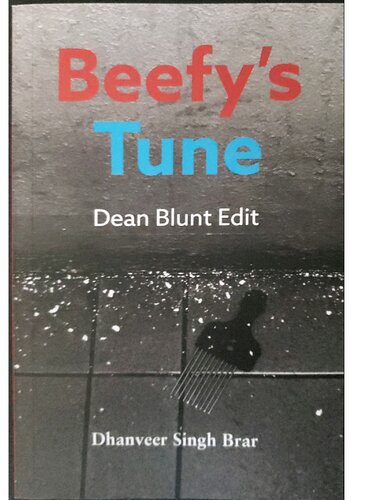

Most ebook files are in PDF format, so you can easily read them using various software such as Foxit Reader or directly on the Google Chrome browser.
Some ebook files are released by publishers in other formats such as .awz, .mobi, .epub, .fb2, etc. You may need to install specific software to read these formats on mobile/PC, such as Calibre.
Please read the tutorial at this link: https://ebookbell.com/faq
We offer FREE conversion to the popular formats you request; however, this may take some time. Therefore, right after payment, please email us, and we will try to provide the service as quickly as possible.
For some exceptional file formats or broken links (if any), please refrain from opening any disputes. Instead, email us first, and we will try to assist within a maximum of 6 hours.
EbookBell Team

4.7
66 reviewsDean Blunt is the most important British artist of the current century because he fundamentally does not care about Britain. His importance makes it shocking that such little critical attention has been paid to his work. His indifference explains it. Dhanveer Singh Brar’s ‘Beefy’s Tune (Dean Blunt Edit)’ looks to initiate a conversation that needs to be had about Dean Blunt, about Britain (through Blunt’s indifference to it), and about Blackness in Britain (through the depth and complexity of Blunt’s feeling for it). Using the 2016 album ‘BBF Hosted By DJ Escrow’ as a means of navigation, Brar hears Blunt in order to access the long contested dream of Britain’s disappearance that was conducted under the name of Black British Arts. Partial (in the sense of his relation to Blunt) and partial (in the sense of unfinished), ‘Beefy’s Tune (Dean Blunt Edit)’ see’s Dhanveer Singh Brar give the dream a grammar, if not a name.
Dhanveer Singh Brar is a theorist and scholar who teaches in the Department of Visual Cultures at Goldsmiths, University of London. His is a member of Le Mardi Gras Listening Collective and Lovers Discourse. Brar’s second book ‘Teklife, Ghettoville, Eski: The Sonic Ecologies of Black Music in the Early Twenty-First Century’ will be published by Goldsmiths Press/MIT Press in Spring 2021